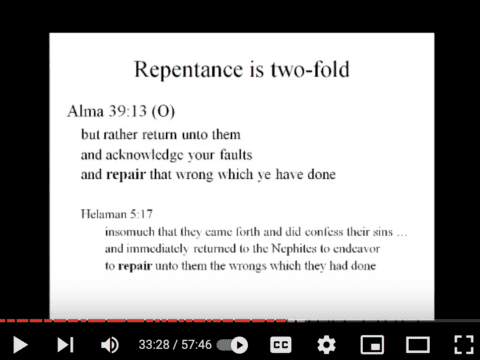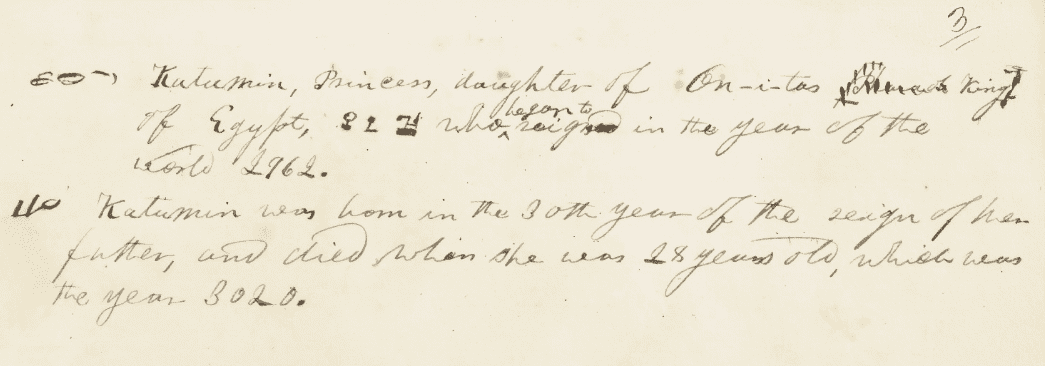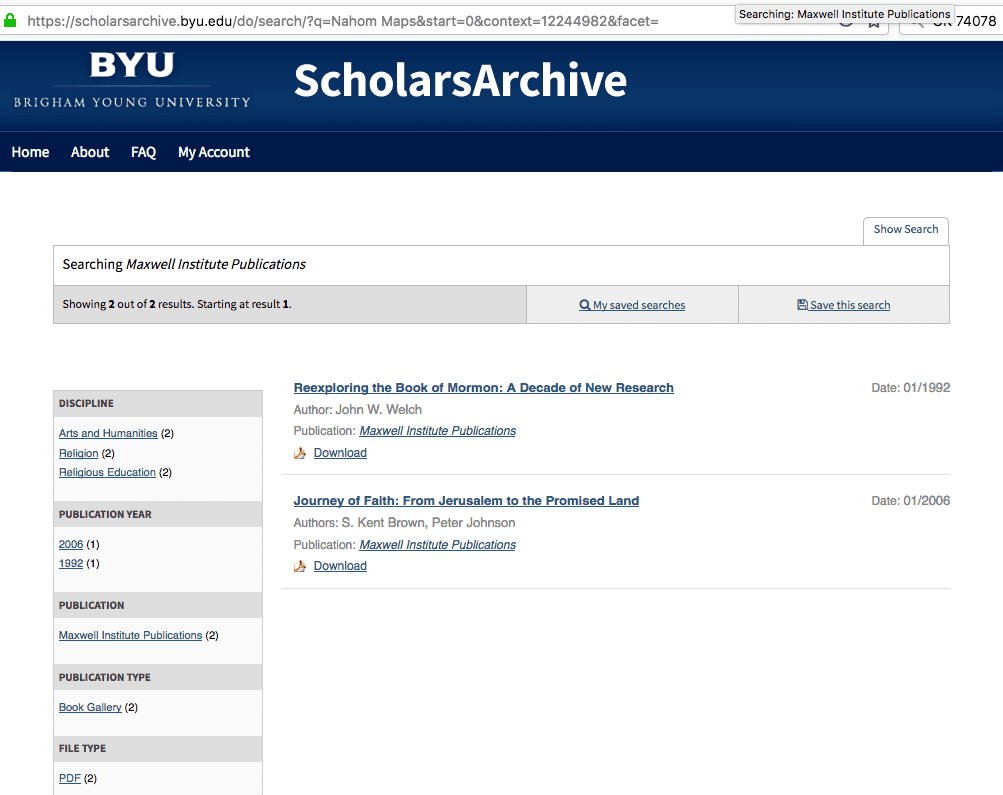Early Christianity was in deep trouble. Early persecution from some Jewish leaders was certainly a roadblock, but then came the persecution of the Roman Empire. For over two centuries it would be persecuted and despised by the Romans. It would be declared illegal and treasonous for its failure to worship the Emperor as a god. It would suffer sporadic persecution and seizure of property. Tens of thousands would be martyrs. In 300 A.D., the leading econometric indicators for Christianity looked bleak, in spite of a slowly growing and highly loyal base of adherents who were willing to suffer and lose all for what was viewed as a fringe religion and dangerous cult or superstition. Even with its noteworthy market share obtained by word-of-mouth advertising and social networking, its long-term viability was desperately poor using generally accepted financial forecasting tools. Roman headwinds threatened to topple the Christians in the religious marketplace of the day.
Fortunately, big Roman Government was there to help with a massive bailout plan. Constantine I, the Emperor of the world’s largest empire at the time, offered a bailout and a stimulus program to booster Christianity and help it become the successful enterprise he envisioned, a tool that would help him maintain control and stabilize his booming empire. He had a vision for Christianity. Indeed, he claimed to have had a vision in 312 at the Battle of Milvian Bridge, where he allegedly said he saw a cross of light above the sun with Greek words saying “By this, conquer!” With this valuable Insider tip, he commanded his troops to paint the Greek letters chi and rho on their shields (the first two letters in the Greek name for Christ – or was it an early stock ticker?). They fought well, and Constantine won the battle. Incidentally, this was not a battle to protect Rome from some foreign threat. Rather, it was a battle in a war of sorts started by Constantine to overthrow his political rival, Maxentius, who was actually his brother-in-law. Maxentius was the favorite of Rome and had been declared emperor a year earlier. Constantine attacked Maxentius’ troops in Rome to settle their dispute. Maxentius died in the battle, and the victory with alleged divine assistance led to Constantine becoming emperor. Now that the hostile takeover had been completed, Constantine would show the decapitated head of his brother-in-law to many to remind people who was in charge.
It seems that Christianity appealed to Constantine as a tool to gain increased political power. He legalized it, bailed it out with financial support, gave it clout and power — and ultimately (in my opinion) weakened or destroyed the spirit and heart of the religion, making it a tool for worldly objectives, not private spiritual change and selfless ministry. That’s my take on what happened over the following decades or centuries after making it a state religion. Not a good thing for the Gospel of Jesus Christ, though much of it survived and thrived – but not all.
We learn a little about modern bailouts from the Roman example. Government actions (persecution in this case) were what caused the need or opportunity for the bailout in the first place. Then massive government help to the beleaguered institution came with a price, a rule that has never been violated throughout the history of ambitious politicians offering financial and military help to others. That price involved surrendering some control and power to the politicians. Constantine, though not a baptized Christian himself (he would later accept baptism on his deathbed), took over some of the reins of Christianity. Under his bailout program, he now assumed power to decide who should be bishop. When there were conflicts over doctrine and practice, he, not the religious leaders, would organize and empower councils to settle the issue. The Nicene Council, organized to settle one of the most fundamental issues of Christian faith, was called by Constantine, not religious leaders. Rather than turning to the apostles and prophets Christ had set in the Church, the Church in the 4th century turned to bickering priests and philosophers assembled and authorized by a pagan emperor to resolve a matter of utmost doctrinal import. {Update, 1/20/08:} While we accept most of what is in the Nicene creed and much of the other creeds, the aspects defining the nature of the Godhead in Trinitarian terms are problematic for us. The Nicene Creed, for example, requires that God and Christ are of “one substance” (establishing a metaphysical oneness of substance rather than the oneness of heart, mind, and purpose that Christ taught in John 17) and rejects the concept that Christ is subordinate to the Father (which is what one would expect of a Son who can say “my Father is greater than I” in John 14:28). Together, the creeds (including, for example, the Athanasian Creed) describe the Godhead using concepts much at home among the dominating Neo-Platonic philosophy of the day but rather foreign to New Testament Christianity. The Hellenized, metaphysical God of the creeds arguably would be unrecognizable to the disciples of Christ, who saw and handled His resurrected body, and one of whom saw Christ standing on the right hand of God. {End update.}
The bailout was a smashing success. Christianity was no longer an impoverished and persecuted religion spread quietly from one devout believer to another with humble private meetings, but a publicly endorsed and controlled state religion for the masses. While Constantine legalized and endorsed Christianity, a few decades later in 380 A.D., Theodosius I would issued the edict De Fide Catolica establishing “Catholic Christianity” as the official state religion and outlawing paganism and other faiths. Whole tribes and nations would be made into Christians, like it or not.
Taxation and plunder would fuel the growth of the thriving Church and bless it with the opulence of the world. It would be a religion dressed for success, but stripped of some of its original sacred robes.
In spite of the political excesses and errors in Christianity during this era and following centuries, the combination of religion and state power did spread basic Christian faith across the globe. Many good Christians, both clergy and their adherents, did their best to please God and follow the Savior. Reforms within the Church and in Protestantism have sought to correct past errors and problems. But we believe something more than reform was needed. We believe there was a Restoration of the Gospel and Jesus Christ, with its power, authority, and offices of apostles and prophets, bringing ongoing revelation rather than politicized councils of contention as the means for guiding the Church through the challenges of the day.
I realize that my comments here will offend some, especially those raised in or converted to a deep faith in . . . politicians. While I disagree with your faith in politicians, I still respect your – – wait, no, no, it’s time for me to be honest about this. I can respect and admire many aspects of just about any other religion, in spite of disagreements, but this mindless Faith in Politicians cult has got to go. It’s insane and is a threat to all of us. Unbounded government intervention and aggressive “help” for business or religion is something to be dreaded. It’s the most dangerous scam and cult of all.












Jeff Lindsay for President, 2012!!
I never considered the money aspect of Constintine’s acceptance of Christianity. But it makes total sense.
Great insights!
Arguably, Constantine’s promulgation of Christianity was a prerequisite to the restoration. Without it, Catholicism wouldn’t have spread far enough to reach those oppressed by its system to engender protestantism. And without the multiplication of various sects, Joseph wouldn’t have turned to James for enlightenment.
There’s always two sides to one coin.
Arguably, the Jewish apostasy was a prerequisite to the Atonement, too.
¶ Woe unto the world because of offences! for it must needs be that offences come; but woe to that man by whom the offence cometh!
It seems that in this fallen world lots of good things are tied to the acts of evil men, or at least evil acts of men.
This observation has caused major dilemmas for great Christian thinkers over the years, as God depending on evil to achieve good seems to make evil less evil or even a necessary (good?) thing.
I certainly don’t have an answer to this; maybe Jeff does?
I’m afraid that, by the time Constantine’s bailout rolled around. Christianity had long since been sold by its founders and the new stockholders, instead of listening to their chairman and board of directors, cared less for the integrity of the business than for profit. They didn’t want to know what went on, just so long as someone sent them a check every month.
The Hellenization of Christianity, if it was as big a factor in the Apostasy as we Mormons think its was, happened 100-200 years before Constantine. Neverthtless, Hellenized and other varieties of Judaism were arguably more culpable candidates for the corruption of Apostolic doctrine. But both Judaism and Hellenism were small fry, IMO, compared with dissent, rebellion and doctrinal innovation within the Christian ranks. Roman persecution, if it happened at all on a large scale before Diocletian, was a far greater strengthening factor compared with disunity from within.
In short, Jeff, I like your point about politicians and the government bailout, but I don’t think your Christian history is entirely accurate.
Very significant aspects of the Apostasy occurred long before Constantine, I absolutely agree. Hellenization was well underway, prophecy had been lost, etc. My focus on Constantine and the “bailout” for this post was not meant to offer a complete review of the Apostasy and its origins, but rather to point to the trouble of government help to private institutions. Pray that the Mormons never get a Federal bailout!
Excellent analogy! or is it a metaphor? so confusing…
On pre-requisites: I dont believe life occurs in a linear fashion that requires certain pre-requisites. It is tempting to view history and declare that it had to happen how it happened, but I dont think that idea is correct.
I view life more like a game of chess with many choices, many paths and many possible outcomes. Since agency is a governing principle, and evil is a consequence of misguided agency, then “…it must needs be that offences come…”. Translation: people are going to make poor choices and create bad situations. God does not depend on or require evil to acheive good, but since people are capable of creating both good and evil, God is naturally going to use both outcomes to further his work, turning a negative situation others chose to create into a positive situation.
Basically, God is an active player in the game of life-chess, seeing all the possibilities, staying many steps ahead, making his moves in real-time as others make their choices on the board.
Maybe I am oversimplifying it, but that is how I make sense of it.
And yes, pray that Mormons never place themselves in a position that requires a Federal bailout…
Jeff….your posts are always so outstanding. Your blog is the only Mormon authored blog I follow “religiously.” Thanks so much.
Regarding the idea of the church ever needing a federal bailout…
I would hope that if the church ever got into such dire financial straits that, as a matter of principle, it would choose bankruptcy over bailout. I’d rather the members be required to dig themselves out of the problem than become enslaved to the fed or any other outside entity.
Why can’t our politicians trust/require the American people to do the same? (that is rhetorical, by the way)
HI Jeff,
As a Catholic, I am rather familiar with the Niocene Creed; we recite it in mass every week. What aspect of the God described in that creed is unfamiliar to the God of the bible. We believe in one God, the Father, the Almighty…that’s the preamble. Look to the bible, and Christian beliefs…how is this not the God described in the bible?
Continue on…we believe in Jesus Christ, the only begotten son…again, this is in keeping with the Christian teachings that Jesus is the son of God.
We believe in the Holy Spirit…seems that St. Paul, and Jesus talk about the Holy Spirit at length. Plus you see the workings of the spirit throughout the New Testament.
We believe in one holy Catholic and Apostolic Church…one universal church led by the apostlate. What isn’t in keeping with the Christian teachings there? Frankly, your faith follows many of these teachings and beliefs. There is a disagreement over the Trinitarian view…but your church subscribes to the three members of the Godhead, the universal nature of the church, and the established leadership of the apostles. Just a few thoughts to ponder.
Sincerely
Catholic Defender
CD, you raise a good point. The Nicene Creed is largely acceptable – it’s the metaphysical Trinitarian implications of “one substance” that pose particular challenges, along with the denial of subordinate status for the Son, who is, after all, a begotten Son who came to do not His will, but the will of the Father. The “proceeding” aspect of the Holy Ghost also brings us back to puzzling metaphysics. But 90% of the Creed is fine with us.
I altered the post with an update in that section, clarifying that we accept most of the Nicene Creed, and that it’s some of the later creeds that are especially problematic.
FWIW, here is the original passage I had written and now clarified. My original statement better fits the later Athanasian Creed than the Nicene Creed.
The result, not surprisingly, was a creed that would describe the Godhead using concepts much at home among the dominating Neo-Platonic philosophy of the day but rather foreign to New Testament Christianity. The Hellenized, metaphysical God of the Nicene Creed arguably would be unrecognizable to the disciples of Christ, who saw and handled His resurrected body, and one of whom saw Christ standing on the right hand of God.
It’s peripheral to the intent of your post, but…
I remember reading, and cannot find it in my notes where I read it, that the Nicene “of one substance” was actually a compromise. In the Greek it is unclear whether it means the exact same substance, or the same kind of substance. Each interpretation was backed by fairly large factions in the council.
That the exact same substance interpretation won over time, is historical accident, if winning an argument that goes on for several centuries can be termed accidental.